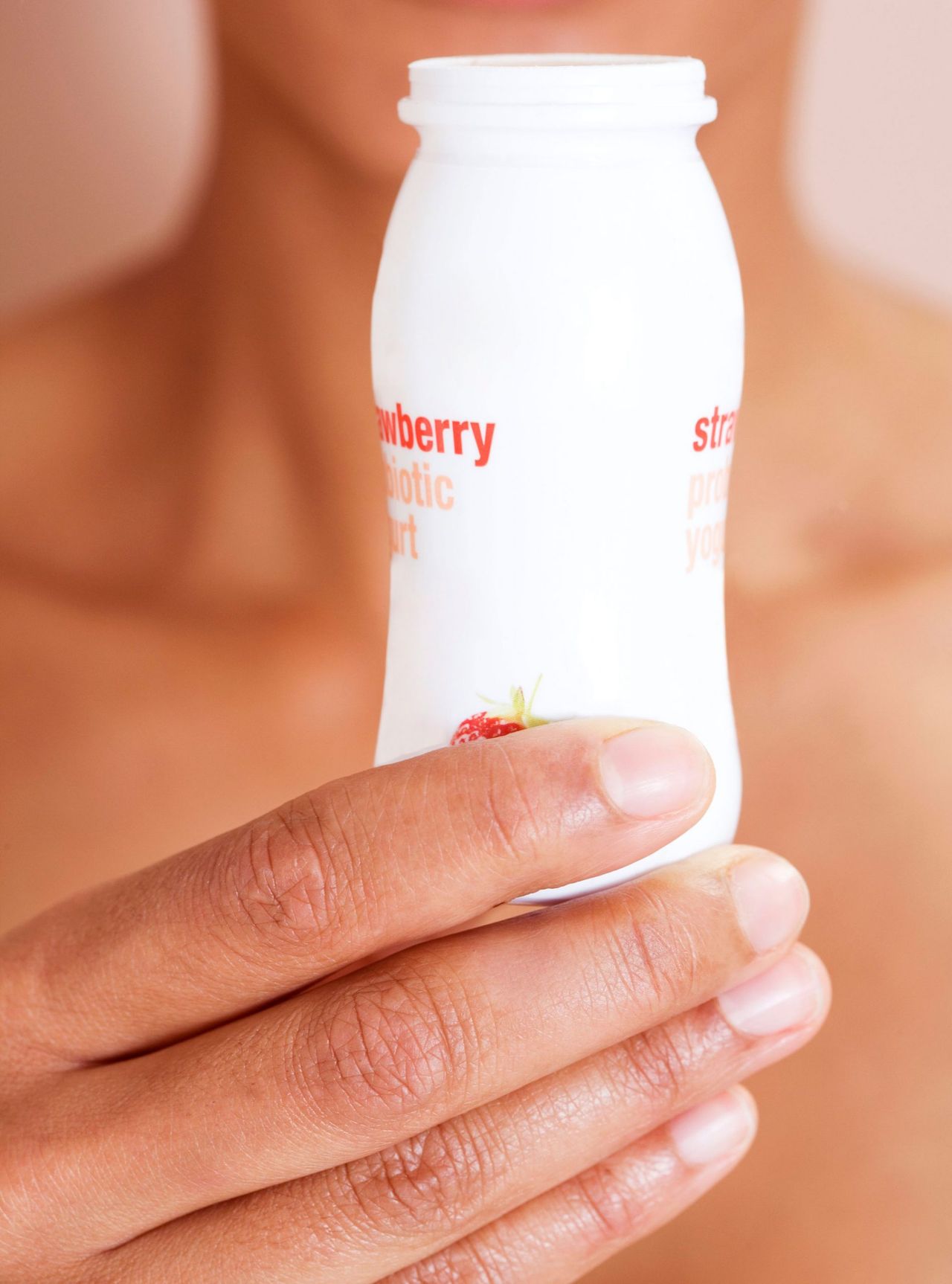What Can You Use Probiotics For?

We're all now familiar with the idea that a healthy balance of good and bad bacteria - or microflora - is vital to gut health. But what you may not realise is that properly balanced microflora are just as important for health "down there". In fact the urogenital system - which includes the vagina and urethra, the tube from the bladder - is home to more than 50 different species of bacteria and other micro-organisms. And according to latest research, when it comes to keeping this system healthy and fending off infections such as cystitis, thrush and bacterial vaginosis (BV), probiotics could be your biggest ally.
Our experts: Gabrielle Downey, Consultant Gynaecologist, Birmingham City Hospital.
Gregor Reid, Professor of Microbiology and Immunology, and Surgery at Canada's Western University.
Austin Ugwumadu, Consultant Obstetrician and Gynaecologist St George's, specialising in recurrent thrush and bacterial vaginosis.
Urogenital microflora - need to know
Pre-menopause, certain strains of "good" bacteria - called lactobacilli - all help protect urogenital health. How? Partly through sheer force of numbers, which muscles out the bad guys, and partly through production of lactic acid and other chemicals, including a weak "bleach" (hydrogen peroxide), which repel bad bacteria. But research shows that if lactobacilli decline in number or are wiped out for any reason, the bad guys can take hold, leading to urinary tract infections (UTIs), thrush, BV and other urogenital infections. The BIG 3 1. UTIs happen when bad bacteria - usually E. coli, which live in the bowel - get into the vagina and urethra where they elbow out healthy lactobacilli, causing inflammation and that agonising burning, stinging and strong-smelling urine that characterises cystitis and other urinary infections.
2. Thrush occurs when certain yeasts - usually candida - that most of the time lie dormant in the vagina, turn into an active form, causing a curd-like discharge, itching and soreness. Disruption of the normal balance of vaginal microflora due to a short-term dip in immunity or a shortage of lactobacilli can be triggers.
3. BV doesn't always cause symptoms but there's usually a thin, watery discharge and fishy smell that's often worse after sex. It's a result of harmful bacteria accumulating in a multi-layered "biofilm" of bacteria and other micro-organisms, that coats the vagina, which antibiotics find hard to penetrate, making it difficult to treat.
Sign up for the woman&home newsletter
Sign up to our free daily email for the latest royal and entertainment news, interesting opinion, expert advice on styling and beauty trends, and no-nonsense guides to the health and wellness questions you want answered.
Q&A with world leader in probiotics for urogenital health, Professor Gregor Reid.
Q - How do probiotics combat urogenital infections? A - In multiple ways - by creating an environment hostile to infection-causing bacteria, by stopping them sticking to the surface of the urogenital tissues, by killing them, by reducing their virulence and by boosting the immune system.
Q - What's the evidence that probiotics can help? A - There are now hundreds of research papers - including more than 300 on two lactobacilli strains, Lactobacillus rhamnosus GR-1 and Lactobacillus reuteri RC-14. In a recent study, we found taking capsules containing these effectively cleared UTIs and thrush, as well as restoring the normal healthy balance of lactobacilli in the vagina. This does not happen with antibiotics or antifungals alone. Probiotics can also interfere with the multiplication of yeasts in thrush, and penetrate and disrupt the "biofilm" in BV, which makes this so hard to treat.
Q - Is it OK to take probiotics with antibiotics? A - Yes - it's essential to do so. Antibiotics are like carpet bombers that destroy beneficial bacterial throughout the body. Taking probiotics is a small step to reducing the impact, without stopping the antibiotic from killing harmful bacteria.
Q - What about the worry of getting recurrent infections? A - Replenishing lactobacilli in the vagina and so blocking harmful bacteria can boost the body's natural defences, and there are no harmful effects. These are naturally occurring bacteria, some of which we used to consume every day in fermented foods such as yogurt and sauerkraut. Infections may still occur; hopefully fewer.
Q - What about probiotic drinks - do they work? A - They don't contain specific lactobacilli strains that have been studied.
Over-the-counter helpers
- OptiBac Probiotics For Women
An oral probiotic containing 2.3 billion live cultures of Lactobacillus rhamnosus GR-1 and Lactobacillus reuteri RC-14, clinically proven to reach and survive in the vagina. £17.99 for 30 capsules from optibacprobiotics.com/uk and also from good independent health food stores and pharmacies.
- Canesflor
Vaginal probiotic pessaries to help prevent the recurrence of vaginal infections. They contain the probiotic Lactobacillus plantarum P 17630 VI,which in studies has been shown to block candida albicans yeast from sticking to the vaginal walls. £14.99 for 10 capsules from canesten.co.uk and boots.com.
- Bio-Kult Candea
An oral probiotic that includes seven different probiotic strains found naturally in the digestive system, including Lactobacillus rhamnosusPXN54, as well as garlic and grapefruit seed extract (both of which are well known for their naturally powerful properties). £14.95 for 60 capsules, bio-kult.com
- Primadophilus Optima
An oral probiotic supplement with 14 uniquely combined friendly bacteria strains, including Lactobacillus acidophilus and Lactobacillus rhamnosus. A recent review looking at these strains working in unison concluded that they could improve urogenital health. £15.99 for 30 capsules from Amazon.
Best tips to keep your system happy
Various factors can disrupt the microflora, making it easier for urogenital infections to take hold. Some - such as hormonal fluctuations, and diseases such as diabetes - can make the vagina less acidic, which you can do nothing about. But some you can, so maintain a healthy balance...
Manage stress It can dent the immune system, so make time for that yoga class, sit down and watch a box set, read a magazine, go for a run... whatever relaxes you.
Steer clear of sugar Eating too much sugar can alter the acidic environment of the vagina, making it friendlier to bad bacteria and yeasts.
Practise good vaginal hygiene Use plain water to wash and avoid scented products as well as tight jeans and clothing that can create the dark, warm, moist environment yeasts and certain bacteria love.
Don't push for antibiotics Overuse of them is the recipe for antibiotic resistance. Don't insist your doctor always prescribes them. But if you are prescribed them, take the whole course; stopping too soon encourages infection to return more strongly.
Recurrent infections
UTIs Some women are prone to more frequent infections due to individual variations in anatomy, antibiotic resistance and a reservoir of bugs. The solution... Says Gabrielle Downey, "There is always an antibiotic that recurrent infections will respond to. Ask the doctor to send your urine sample to be cultured to identify the exact bacteria involved so treatment can be tailored to you." One of the problems though is the time it takes to get a sample tested and whether lab testing is sophisticated enough to show low levels of bugs before an infection becomes really bad. For help with recurrent UTIs and associated problems call the Bladder Health UK (formerly Cystitis & Overactive Bladder Foundation) Helpline on 0121 702 0820.
Thrush Recurrent thrush is often caused by other yeasts than candida. And sometimes what appears to be thrush may be - or may be complicated by - an allergic reaction. Potential allergens? Personal hygiene products, clothing, detergents and fabric softeners - even medications such as penicillin, ingredients in protein shakes or a partner's sperm. If you're allergy-prone (hay fever or perennial rhinitis), you could be at risk. The solution... "Proper diagnosis rather than self-diagnosis and treatment, which at best may divert or temporarily paralyse the offending yeasts or do nothing," says Austin Uguwumadu. Again, only a few labs offer sensitive enough tests to determine what's going on, so see a consultant who specialises in thrush or visit an STI clinic. If thrush is the culprit, prolonged antifungal treatment lasting for six months to suppress symptoms plus, if necessary, an allergen-avoidance regime can be effective.
Amy Hunt is an experienced digital journalist specialising in homes, interiors and hobbies. She began her career working as the features assistant at woman&home magazine, before moving over to the digital side of the brand where she eventually became the Lifestyle Editor up until January 2022. Amy won the Digital Journalist of the Year award at the AOP Awards in 2019 for her work on womanandhome.com.
-
 Trinny Woodall's easy styling tricks are helping us get the quiet luxury look on a budget
Trinny Woodall's easy styling tricks are helping us get the quiet luxury look on a budgetYou don't need to break the bank to get a high-end look
By Charlie Elizabeth Culverhouse Published
-
 The secret behind Gillian Anderson’s chic, long-lasting eye makeup look is… lipstick
The secret behind Gillian Anderson’s chic, long-lasting eye makeup look is… lipstickHer makeup trick might seem unusual, but it's actually very handy
By Charlie Elizabeth Culverhouse Published

